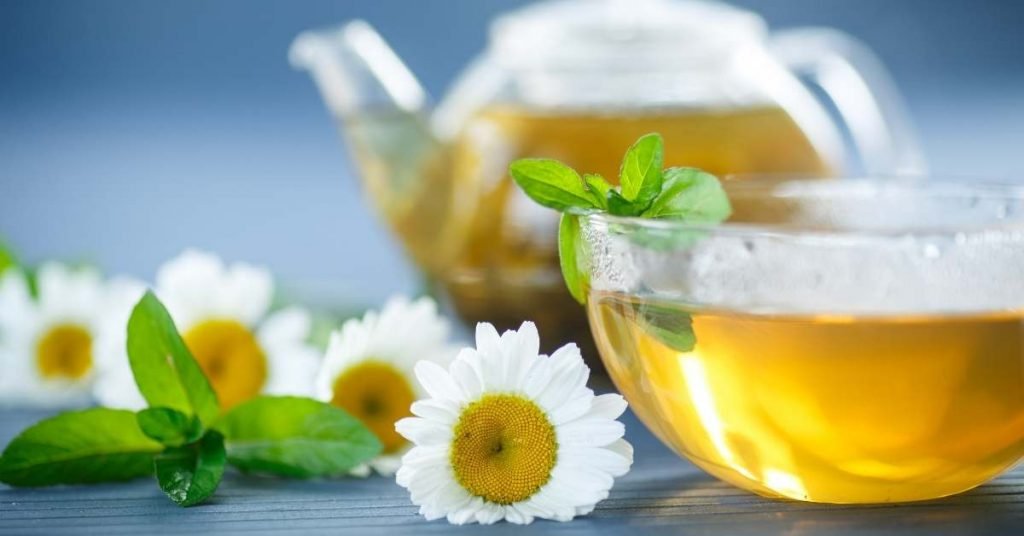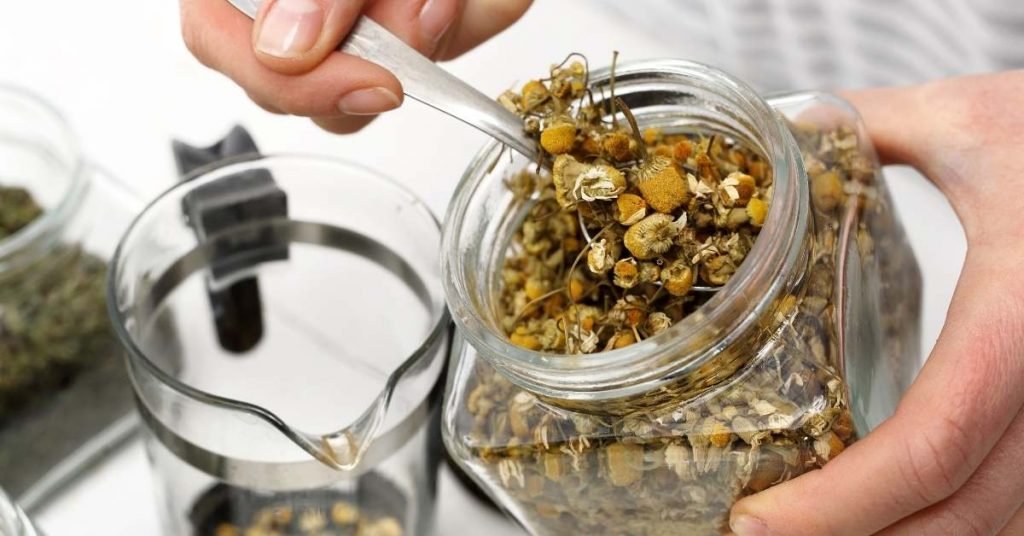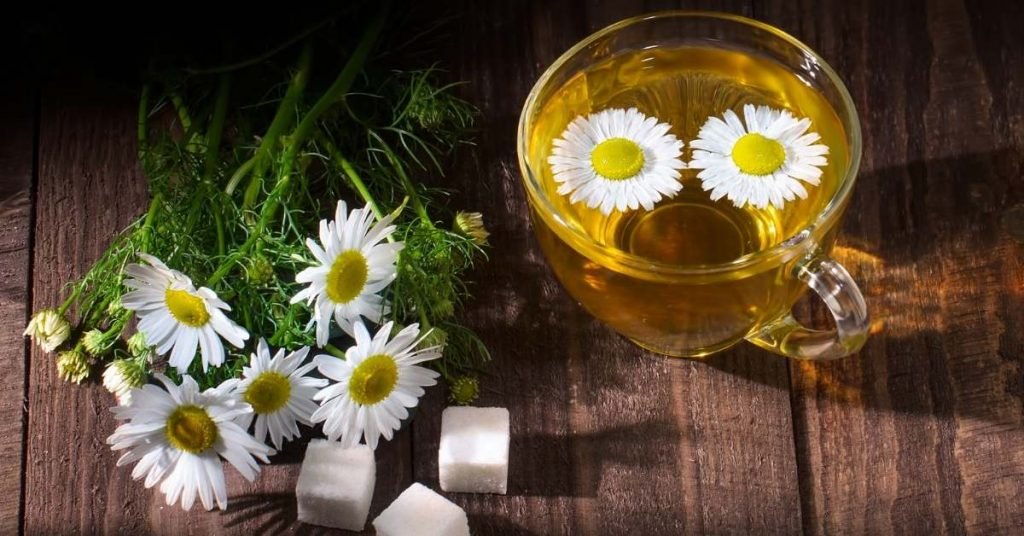Chamomile is one of the most widespread herbs and it grows basically in every part of the world.
Its sweet and mildly earthy taste is an excellent caffeine-free replacement for Green and Black tea.
Furthermore, chamomile is an excellent addition to strong teas such as Assam, adding natural sweetness and calming effects.
Favorite among herbal tea enthusiasts, chamomile is easy to grow, harvest, and dry, and it adds an aesthetic value to any garden or balcony.
Chamomile Tea Benefits

This herbal tisane is known to have various benefits for human health, so it’s often found on tea houses menus or as part of Green and Black tea blends.
Its extraordinary aroma makes it a favorite bedtime infusion for people who struggle with insomnia.
Here are some of the most valuable benefits of chamomile tea:
- It promotes quality sleep. Chamomile tea has mildly sedative properties thanks to the abundant antioxidant, apigenin, which causes sleepiness, thus helping people who have trouble sleeping at night.
- It aids digestion. Chamomile tea has anti-inflammatory and antioxidant properties that improve digestion in humans and prevent ulcers and other gastrointestinal conditions.
- It might prevent cancer. Chamomile tea is rich in apigenin molecule that acts as a potent agent in reducing tumor growth.
- It can lower blood sugar levels. Chamomile tea protects against the damage to pancreas cells which get affected by high blood sugar.
- Chamomile tea lowers LDL (bad) cholesterol thanks to the high content of flavones, and antioxidants that reduce cholesterol.
The information presented on this site is provided for information purposes only. It is not meant to substitute for medical advice or diagnosis provided by your physician or other medical professionals. Do not use this information to diagnose, treat, or cure any illness or health condition. If you have or suspect that you have a medical problem, contact your physician or healthcare provider.
Is It OK to Drink Chamomile Tea Every Day?

Yes, chamomile tea is safe to drink every day.
You can ingest two cups per day without having any side effects, but have in mind that it will make you sleepy.
What Does Chamomile Tea Do to the Brain?
The sleep-inducing properties of chamomile tea help reduce stress.
Additionally, chamomile tea boosts the activity of the brain’s neurotransmitters like dopamine and serotonin and helps improve mood and decrease anxiety.
How Long Does It Take Chamomile Tea to Kick In?
Chamomile tea takes about 30-45 minutes before it gets fully absorbed by our body.
Having this in mind, you should drink chamomile at least 30 minutes before going to bed at night.
Can I Drink Chamomile Tea in the Morning?
Absolutely, yes! You can have chamomile tea at any time of the day, depending on your needs, schedule, and body chemistry.
For example, people exposed to a lot of stress during the day can cope better with the sedative properties of chamomile. Moreover, it is recommended to have chamomile tea in the morning for anxious individuals.

Is Chamomile Tea Good for Menstrual Cramps?
Chamomile tea is one of the most beloved teas among women experiencing crams and discomforts during their period.
Also, chamomile possesses anti-s[asmodic properties which can reduce PMS symptoms, reduce crams, and alleviate before and during menstruation.
How Can I Prepare Chamomile Tea?
Pour a cup of boiling water over a teaspoon of dried chamomile flowers and let it steep for 4-5 minutes.
Strain the flowers and add your favorite sweetener. Serve with lime and tea cookies.

Final Word
Chamomile tea is one of the most popular herbal teas in the world.
It’s packed with antioxidants and has extraordinary anti-inflammatory properties that improve gut health, reduce menstrual cramps, and promote quality sleep.
The best time to have chamomile tea is 30 minutes before going to bed while anxious individuals can enjoy a warm cuppa in the morning.
MEDICAL DISCLAIMER
Itsnevernotteatime.com cannot and does not contain medical/health advice. The medical/health information is provided for general and educational purposes only and is not a substitute for professional advice.




